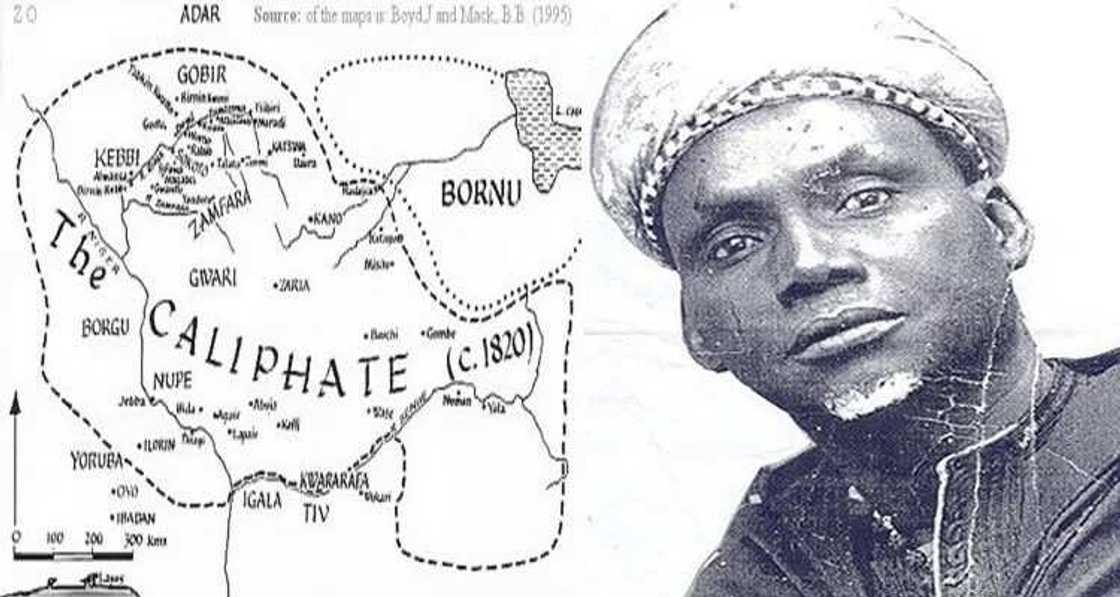
The Kanem-Bornu Empire: A Powerful Center of Trade and Islamic Scholarship in Pre-Colonial Nigeria
The Kanem-Bornu Empire, one of the longest-lasting empires in African history, was a dominant political and economic force in pre-colonial Nigeria and West Africa. Situated around Lake Chad, this empire was a center of Islamic learning, trade, and governance. The Kanem-Bornu Empire thrived from the 9th century to the 19th century, leaving a legacy of influence and cultural exchange across the Sahel and beyond.
Origins and Early History of the Kanem Empire
The Kanem-Bornu Empire began as the Kingdom of Kanem in the 9th century, located northeast of Lake Chad. It was founded by the nomadic Kanembu people, who established Kanem as a powerful regional state. Kanem’s strategic location allowed it to thrive as a center of trade, connecting North Africa, the Sahara, and the sub-Saharan regions. The kingdom was part of the larger trans-Saharan trade network, exchanging goods like salt, textiles, and gold.
During the 11th century, the ruling dynasty of Kanem, known as the Sayfawa dynasty, adopted Islam. This led to significant changes in governance, culture, and trade relations with North African and Arabian states, transforming Kanem into a center of Islamic scholarship and diplomacy.
Expansion and the Formation of the Kanem-Bornu Empire
By the 13th century, the Kanem Empire had expanded significantly under the rule of Mai Dunama Dabbalemi, one of its most famous kings. Dabbalemi’s reign was marked by military conquests that extended the empire’s borders and increased its influence. However, internal strife and external pressures led to the weakening of Kanem, eventually forcing the Sayfawa dynasty to move westward to Bornu in the 14th century.
The relocation to Bornu marked the beginning of the Kanem-Bornu Empire, which retained much of the original kingdom’s structure and cultural identity. Bornu became the new center of power, and from here, the Sayfawa dynasty continued to rule a unified Kanem-Bornu Empire, reasserting its dominance over the region.
Kanem-Bornu as a Center of Islamic Learning and Culture
The adoption of Islam by the Kanem rulers had a profound impact on the empire, establishing it as a center for Islamic scholarship in West Africa. Scholars and clerics from North Africa and the Arabian Peninsula were drawn to the empire, fostering an environment of intellectual growth. Kanem-Bornu became known for its Islamic schools and scholars, producing religious texts and spreading Islamic teachings throughout the region.
The rulers of Kanem-Bornu, known as the Mai, held both political and religious authority. They were responsible for upholding Islamic laws and traditions, which reinforced their legitimacy and strengthened their diplomatic relations with other Muslim states across Africa and the Middle East.
Economic Strength: Trade and Commerce
As a powerful trading state, the Kanem-Bornu Empire controlled major trade routes that facilitated the exchange of goods across the Sahara. The empire traded in various commodities, including salt, slaves, gold, and textiles, establishing itself as a critical link in the trans-Saharan trade network.
Kanem-Bornu’s economy benefited from its ability to trade with both North African and sub-Saharan regions, as well as European merchants who engaged in coastal trade. The wealth generated from trade allowed the empire to build cities, fortify its military, and sponsor scholars and religious institutions, cementing its influence in the region.
Political and Military Organization
The Kanem-Bornu Empire was ruled by a central authority led by the Mai, who governed with the assistance of a council of nobles and military leaders. The Sayfawa dynasty maintained power through a well-organized military and administrative structure, which enabled the empire to sustain control over vast territories.
The military strength of Kanem-Bornu was rooted in its cavalry, much like other powerful African states of the time. Skilled horsemen formed the backbone of the empire’s military, allowing it to defend its borders and carry out raids. This military power helped the empire assert control over tributary states and maintain stability within its territories.
Legacy and Influence of the Kanem-Bornu Empire
The legacy of Kanem-Bornu endures through its contributions to Islamic scholarship, governance, and the spread of culture in West Africa. The empire’s Islamic influence is still evident in northern Nigeria, where Islam remains a major religion, shaping the region’s laws, customs, and education.
Despite its decline in the 19th century, the Kanem-Bornu Empire’s history serves as a testament to the political and cultural achievements of African empires before colonial intervention. Its advancements in governance, trade, and religious education highlight the sophistication of pre-colonial African states.
Conclusion
The Kanem-Bornu Empire stands as a remarkable chapter in African history, embodying the rich cultural, political, and religious heritage of Nigeria’s past. Understanding the history of Kanem-Bornu offers valuable insights into the development of Islamic states in Africa and the complexity of pre-colonial African empires. Its legacy lives on in modern Nigeria, reminding us of a time when West Africa was home to powerful and influential civilizations.
Recommended Video
For a visual exploration of the Kanem-Bornu Empire, watch this video that highlights the history, culture, and influence of the empire on pre-colonial Nigeria.



